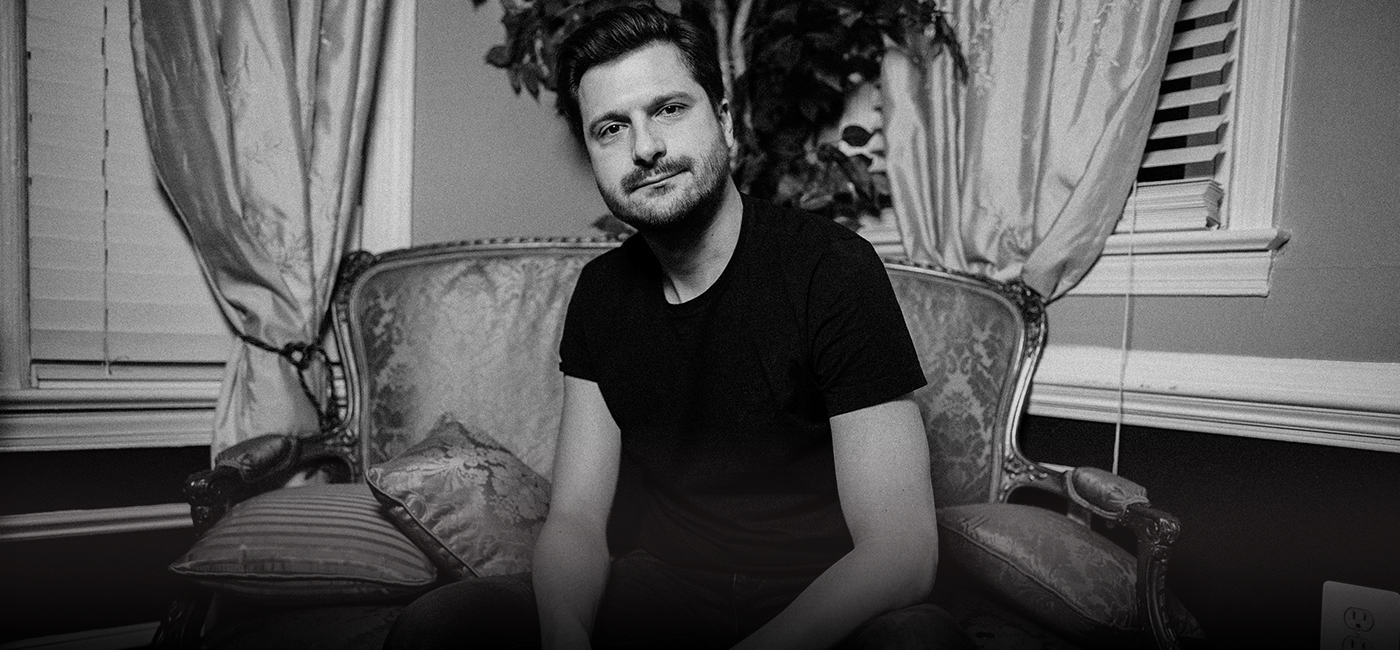
Slovak director-producer Tomáš Krupa unveiled his sophomore documentary feature, The Good Death [+], at the Ji.hlava International Documentary Film Festival. He sat down with Cineuropa to discuss how he approached the controversial topic of euthanasia and managed to complete the project as an international co-production.
Cineuropa: Why did you decide to shoot a documentary about euthanasia after your debut about art students not fitting into real life?
Tomáš Krupa: It might seem like both projects are quite different at first glance, but for me, as their creator, they are connected by the topic of freedom. In Graduates – Freedom Is Not for Free, I implied that freedom is not for free, that it comes with a personal responsibility, and that nobody is going to solve the problems of the younger generation, not even the state. They are all alone, and it is hard because there is no such thing as equality of opportunity. Freedom is the essence of the human being, in my opinion, but no man is an island. Where my freedom starts, somebody else’s ends. And that appears to be a crucial topic when it comes to euthanasia. If I opt for something, I am also opting against something, and that is linked to personal responsibility. One defines the other. I am searching for freedom in my life, but at the same time, I want to give away freedom. This is my topic and will probably be recurrent in my works. I guess my agenda is observing and examining the topic of freedom.
The Good Death has several layers – one of them, you noted, was breaking the taboo of death. Why?
First of all, I’d like to point out that death as a topic does not interest me; I care about life. Death is inevitable, although we know nothing about it. We can only fantasise. Death is interesting when it helps us to look at life from a different perspective. The word “euthanasia” comes from Greek, and means a good or beautiful death. The notion of what constitutes a good death always reflected the notions of what it means to live a good life. Views on the meaning of a good death and the role of suffering are still changing, as they have done throughout the history of civilisation, and we observe how we approach the topic today through the story of Janette and her family, who happen to be in a situation teetering between life and death in my film.
How did you discover your protagonist Janette Butlin?
Janette discovered us – that exemplifies the beauty and mystery of life. You want something, you send a signal out into the world, and you receive an answer, a calling. The original idea was a bit different from the topic of euthanasia. It was a broader concept, but we realised that the key was to narrow the scope in order to have a functional narration. We met a Swiss doctor via a Slovakian manager working for a German company helping people with their voluntary departure from life. She performs voluntary assisted dying and offered us the chance to contact her patients to see whether anybody would react. After two months, we received the only message, and it was from 72-year-old Janette Butlin, who was suffering from terminal muscular dystrophy, and the healthcare system in her country, the UK, did not allow active or passive euthanasia. She was the perfect narrator, with a charismatic and strong personality, which is important for a film. We set out an approach with no boundaries and with utter freedom at the beginning of our relationship, which did not bother her, because her personality was exactly that – free, open, direct and truthful.
The Good Death is a Slovak-Czech-Austrian-Swiss co-production. How did that happen?
We were shooting in England, where Janette lives, then in Switzerland, where she wanted to go to carry out her plan, and in the USA, where her son lives. The whole film is shot in the English language. The crew comes from Slovakia and the Czech Republic, although the movie does not have a local vibe. You cannot tell if it was shot by an English, German, French, Slovak or Czech crew. In this sense, we consider it universal, and that opened up more possibilities for a wider co-production. As a producer, I participated in international markets and workshops in order to finance the project fully and realise it as best I could. The first person to sense the project’s potential was Czech producer Dagmar Sedláčková, who we met at East Doc Platform. Next, it took part in DOK.Incubator, where I began collaborating with Arash T Riahi, the workshop’s dramatic advisor. He was so enthusiastic that he offered to co-produce it with his Austrian outfit Golden Girls Film and brought Swiss sales agent First Hand Films on board, who decided to expand their collaboration to co-production. To sum up, I came to understand that you really need to travel with your project and offer it on different platforms.